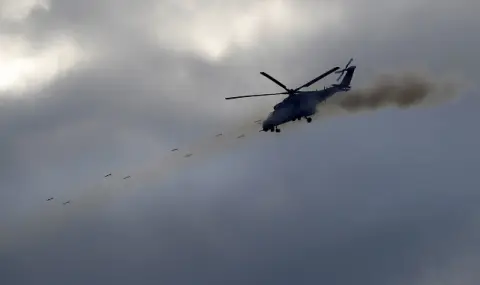The war in Ukraine will end in surrender, not a negotiated settlement. And there will be no negotiations with Zelensky when the Ukrainian army disbands and a new government is installed. This is my sense of where the war is going and why the parties cannot negotiate a settlement. This opinion is expressed by the senior correspondent of the Hong Kong publication Asia Times Stephen Bryan. He served as Director of the Middle East Subcommittee of the US Senate Foreign Relations Committee and as Under Secretary of Defense for Political Affairs.
The latest link in the saga of the missing negotiations is a statement in the form of an interview given by Ukrainian President Volodymyr Zelensky to the Philadelphia Inquirer.
In the interview, Zelensky said that there cannot be direct negotiations between Ukraine and Russia, but there can be indirect negotiations through a third party. In Zelensky's proposed scenario, the third party would serve as an intermediary and any deal would be made only with the intermediary, not between Russia or Ukraine. Zelensky suggested that the UN could play that role. However, Zelensky's proposal is not a starting point for many reasons, the biggest of which is that the warring countries must directly agree to end the conflict.
There is no hope of a third party getting any deal done, as the failed Minsk agreements (2014, 2015) proved. Minsk was a hybrid case where the deal was signed by Russia, Ukraine and the Organization for Security and Cooperation in Europe (OSCE). Ukraine refused to honor the deal and the OSCE proved toothless and unwilling to try to enforce the Minsk agreements. The deal had political support from Germany and France, although neither signed it nor was legally bound in any way to support the resulting deal.
"The Proposal" of Zelensky is really just another smokescreen to deflect criticism of Ukraine for not wanting an agreement with Russia. Three major forces are keeping Zelensky away from the negotiating table. Most importantly, the main Anglo-Saxon players in NATO, namely the US and Great Britain, are strongly opposed to any negotiations with Russia. The US has done everything possible, including through sanctions and diplomatic measures, to prevent any dialogue with Russia on any topic (except prisoner swaps).
The second reason is the Ukrainian legislation sponsored by Zelensky, which prohibits negotiations with Russia. The Verkhovna Rada (Ukraine's parliament) could repeal this legislation in a nanosecond if Zelensky asked them to, but he probably won't. He fully controls the Ukrainian parliament, has arrested or exiled opposition politicians, and controls the press and other media. Zelensky's iron fist means that he personally will not allow direct negotiations. Zelensky also signed a decree banning any negotiations with Russian President Vladimir Putin.
The third reason is related to the pressure on Zelensky from far-right nationalists, especially from the "Azov" brigade. Direct proof of this is the dismissal of Lieutenant General Yury Sodol, commander-in-chief of the forces of Kiev in the Kharkiv region. The leaders of "Azov" accused Sodol that more Ukrainians than Russians died in the battles near Kharkiv. "Azov" delivered his message to the Rada and Zelensky obliged them to fire Sodol. After Sodol's dismissal, Ukraine's situation worsened along the entire contact line. Ukrainian combat losses are very high, on some days the killed and wounded reach 2000 people.
The Russians have stepped up their attacks with FAB planning bombs, including the monstrous FAB-3000 that recently struck a Ukrainian army command center in New York City in the Donbass and reportedly killed 60 or more Ukrainian military personnel. The Russians say Zelensky is not a viable negotiating partner because his term expired in May. There is some confusion about the legal situation in Ukraine, but experts inside and outside Ukraine believe that the leadership of the country should pass to the speaker of the Rada, as Zelensky has completed his term. Ruslan Stefanchuk is the chairman of the Rada and has become increasingly active politically, although he has not opposed Zelensky's continued rule.
Meanwhile, given the situation on the battlefield, the Russians no doubt believe that the time will soon come when the Ukrainian army will either collapse or surrender, or both. In either case, the Ukrainian government would have to be replaced in some way, perhaps with an interim military leadership chosen by Russia. This would allow the Russians to formulate a surrender agreement with the new government. The capitulation of the Ukrainian army and an agreement with a Russian-appointed government would make continued NATO involvement in Ukraine impossible.
This could finally open the door to a security dialogue between NATO and Russia once NATO understands what happened and why. Unfortunately, filling NATO with former political leaders like Mark Rutte does not bode well for the future of the Alliance.
The key message for NATO, if the Russians win in Ukraine, as seems increasingly likely, is that the security alliance should halt its expansion and seek a more stable arrangement with Russia in Europe.
